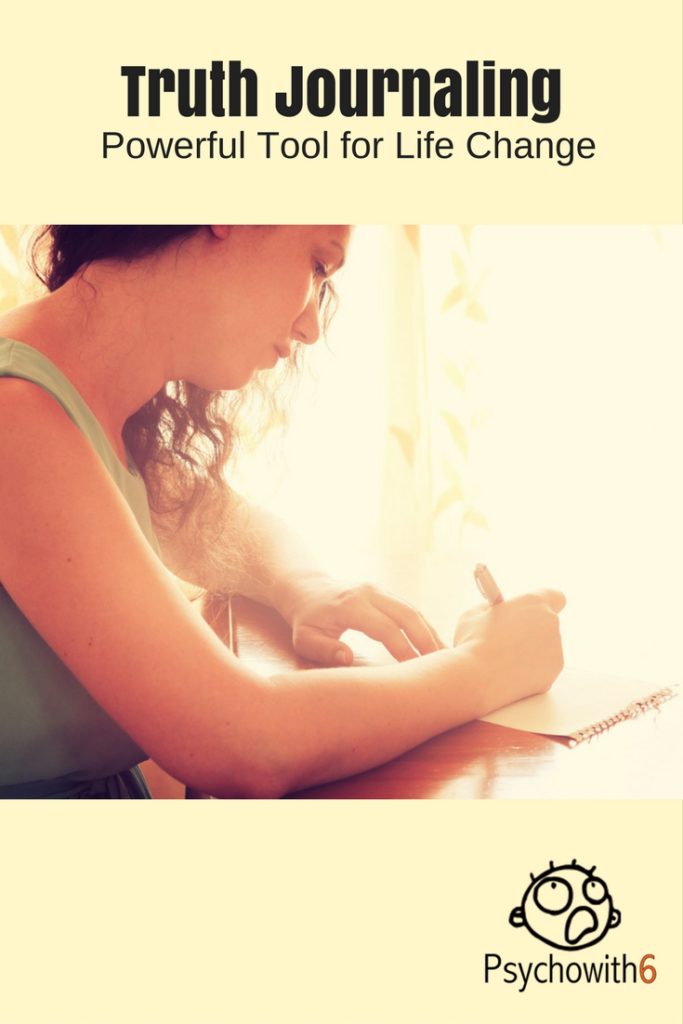I wish I had known about truth journaling when I was in graduate school, pursuing a degree in psychology. I was overweight, living in a disorganized mess, and in debt. I’ll stop there because the list would be very long otherwise. I tried many things to change my life at the time, like a new diet and New Age teaching. But nothing had the power that I needed to change my life.
I had wandered away from God. But even once I’d made my way home and was established as a Christian psychologist, I still struggled. I felt helpless in my fear, anger, and sadness. When various things went wrong in my life, I would lie awake replaying words and events. Even a few years ago, I procrastinated projects like Grammar Galaxy because of multiple fears. I wasn’t making progress in changing bad habits.
When Things Started to Change
I met Barb Raveling through Christian blogging circles. She had written a book on Christian weight loss that I admired, but didn’t need myself. When she asked me to read her book The Renewing of the Mind Project, things changed. I learned about her concept of truth journaling.
[Read: How to Trust God with Weight Loss]
Truth journaling reminded me of the assignment I often gave to anxious clients (and used myself). I asked clients to record everything they were anxious about and to write next to it an action step they would take. That action step might be to pray or to take a small step to address the problem. This process is very helpful for people who ruminate about things. But truth journaling is different.
In truth journaling, we write down what we are thinking that is upsetting to us. For example, one I used early on with truth journaling is:
My friend hasn’t called me back, so she is mad at me.
Before I began truth journaling, I freaked out over thoughts like this. Sorry to destroy your illusions about psychologists! I would respond by imagining every terrible interaction I might have with my friend. I would have trouble sleeping. I wouldn’t be able to concentrate. But after truth journaling, I would talk back to this thought in writing.
She is probably busy. If she is mad at you, it’s her responsibility to tell you. There have been other times she hasn’t called you back and she wasn’t mad. If she is mad at you, you’ll work it out. Even if she never spoke to you again, you’d be okay. God has gotten you through much worse.
After truth journaling, I feel immense relief. The process of getting thoughts on paper is so powerful. Thoughts sequestered in our heads can wreak havoc. Once on paper, these thoughts reveal themselves to be lies and distortions. A phone call not returned does not prove anything — not even death, which is another thing I’ve feared.
How Truth Journaling Changed My Habits
I recently wrote about time management lies homeschool moms believe. One of them is that we’ll have time to do this later. Now that I’ve been truth journaling, I can recognize lies without writing them down. When I tell myself that I’ll have time to hang my clothes up tomorrow, I know this is a lie. I won’t have more time or energy tomorrow. The truth is that habits are created by what we do every day — not what we do when we feel like we have loads of time and energy. So I hang my clothes up right away.
[Read: 6 Time Management Lies Homeschool Moms Believe]
When I worry at night, I truth journal in my mind. I identify the worry and tell it the truth, whether that’s logically or straight from God’s Word. The result is better sleep and a better next day.
How to Truth Journal Your Way to Life Change
If truth journaling sounds like what you need, listen to the podcast interview I did with Barb Raveling. Then download your free truth journaling directions for Psychowith6 subscribers by clicking the button below.
I would love to hear how truth journaling works for you on Facebook.







